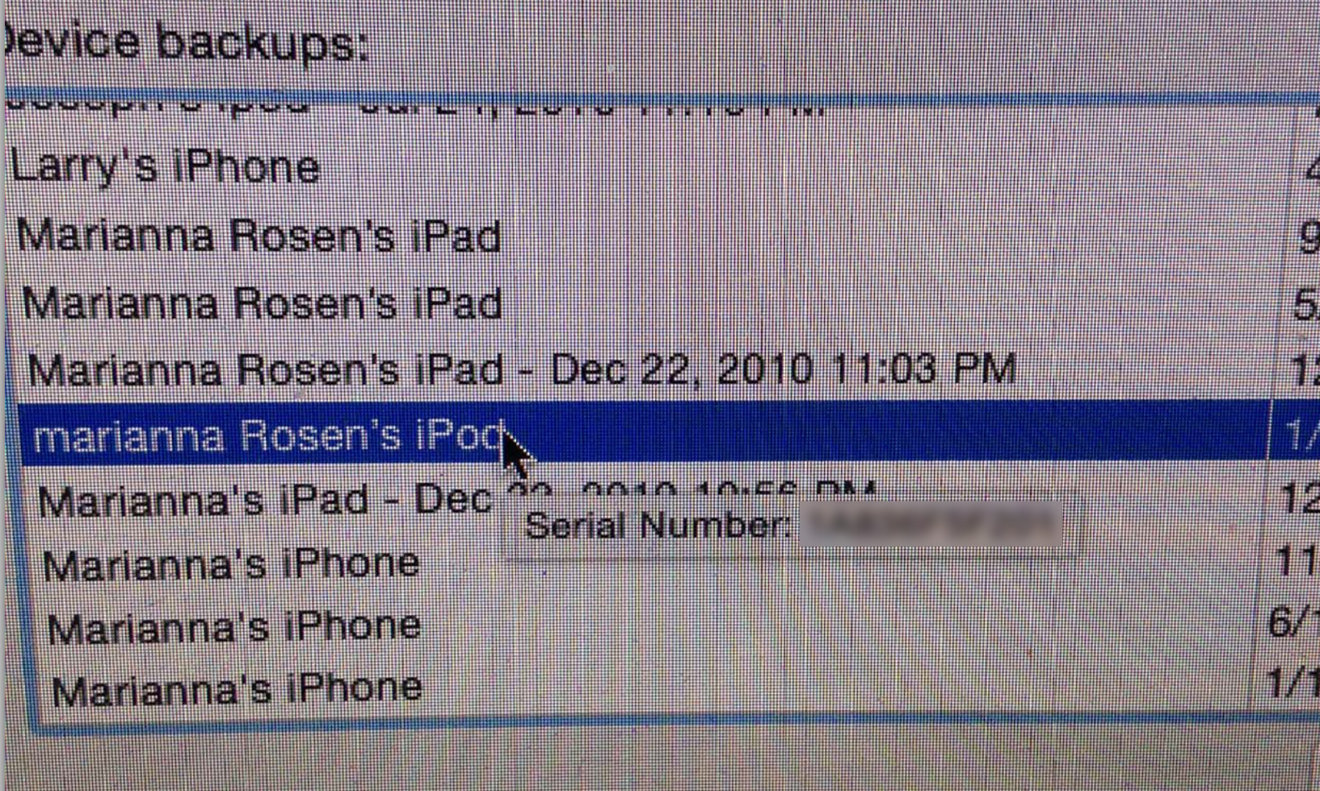During court proceedings in iTunes lawsuit on Monday, new evidence presented by Apple revealed the case's sole remaining plaintiff may not have purchased iPods eligible for action, and the person was subsequently disqualified.
Elaborating on earlier findings regarding plaintiff Marianna Rosen, Apple notified presiding Judge Yvonne Gonzales Rogers that device purchases were made using a credit card assigned to the Rosen Law Firm.
Judge Gonzales Rogers was set to rule on a prior Apple motion to dismiss, but held off in light of the new findings. The remaining plaintiff was removed from the case Monday evening, though lawyers representing the class action say they will have no problem finding a replacement.
Still, lawyers representing Apple are not aggressively seeking dismissal.
"We want to win this case on the merit, and we think we're going to," said Apple attorney William Isaacson. "So we have not pushed to have this decided."
Last week, lawyers withdrew plaintiff Melanie Tucker after it was discovered that her iPod purchases also did not fall within the eligible time span set between Sept. 12, 2006 to March 31, 2009. Proceedings left off with Rosen's purchases still in question, though Apple had noted the iPod touch she claimed to have purchased in 2008 was actually from September 2009.
In previous testimony, Rosen claimed she bought an iPod nano in 2007 and an iPod touch in 2008, but failed to keep necessary receipts proving purchase dates. Instead, she offered up the iPod touch for inspection in court. Using the device serial number, Apple lawyers were able to trace the purchase back to July 2009, The Times reports.
Following Apple's discovery, attorney for the plaintiffs Bonny Sweeney presented paper receipts for iPods purchased in September 2008, within the case's prescribed time period. Again, Apple cross-checked with their own records and found the iPods were bought by the Rosen Law Firm, a business owned by Rosen's husband.
To claim injury, plaintiffs need to prove they purchased iPods directly, not through a family business.
In a filing over the weekend, Rosen amended her claims, saying she bought both an iPod touch and an iPod nano on Sept. 11, 2008 with a credit card issued to the Rosen Law Firm, which was authorized for personal use. This second iPod touch is a separate device from the one produce by Rosen in court and subsequently found to be out of scope. Rosen no longer holds the credit card, but claims it was issued under both her name and the firm's, where she worked from 2004 to 2012.
Sweeney maintains Rosen's standing in the case, adding that even if she was found to be ineligible, the next move would be to find another plaintiff, not dismiss the case.
In its case against Apple, the class is seeking $350 million in damages on allegations that Apple's use of FairPlay digital rights management created a monopoly with the iPod and iTunes Music Store. Under U.S. antitrust laws, damages could be tripled to over $1 billion if Apple is found culpable of wrongdoing.
Update: Judge Gonzales Rogers has denied Apple's motion to dismiss the suit citing a responsibility to the 8 million iPod owners potentially affected by Apple's alleged monopoly. The jurist will hold a session on Tuesday regarding new plaintiff selection. Sweeney said she has numerous iPod owners "ready and willing" to fill in for former lead plaintiffs.
 Mikey Campbell
Mikey Campbell







-m.jpg)






 Charles Martin
Charles Martin

 Malcolm Owen
Malcolm Owen
 William Gallagher
William Gallagher

 Christine McKee
Christine McKee
 Wesley Hilliard
Wesley Hilliard









48 Comments
Lawyer clowns
As well it should. Why this ever got this far is beyond me.
While I'm 100% confident that some money hungry slob will jump in to fill their places. It's farcical that the representation for the plaintiffs have not found eligible customers.
[quote name="ECats" url="/t/183795/ipod-itunes-anti-trust-lawsuit-may-lose-last-standing-plaintiff#post_2649357"]While I'm 100% confident that some money hungry slob will jump in to fill their places. It's farcical that the representation for the plaintiffs have not found eligible customers.[/quote] That's why Apple wants it decided on merit and not a technicality. Prevents future suits.
This whole thing was initiated by the lawyers. Time for them to think of something new to sue Apple for.